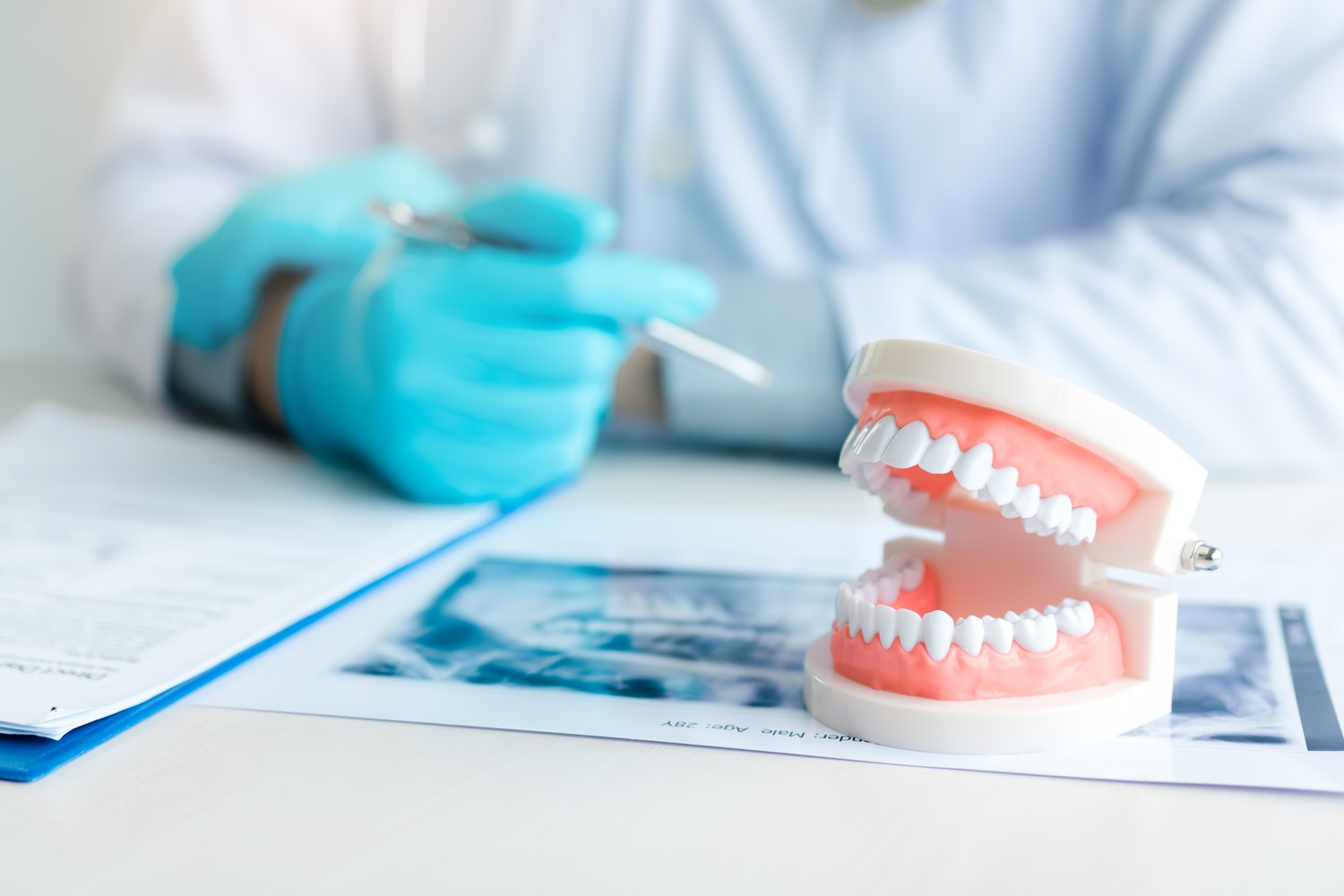For people who’ve lost some of their natural teeth, chances are your dentist has prescribed you to wear dentures. A denture is an artificial teeth and gums designed to replace your missing or lost natural teeth. You can either have the full denture or the partial denture. The full denture is designed for people who’ve lost all their teeth, while the partial denture is only if you’ve lost a few teeth. (1)
Regardless of what type of denture you wear, wearing one will help boost your self-esteem, enhance your speech, support your facial muscles, and allow you to chew and eat hard foods. But with the perks of wearing dentures, they also come with some drawbacks. Eating while wearing dentures won’t feel the same, and you’ll need to learn how to chew differently. Furthermore, while you can still chew hard foods with traditional dentures, you’ll lose around 80% of your chewing capacity. (1)
If you wish to wear dentures that look and feel much more like your original teeth, your best solution is wearing implant-retained or implant-supported dentures. This article will discuss the primary differences between implant-supported dentures vs. implant-retained dentures and determine which best suits your needs. (2)
Five main differences between the two implant denture options
Implant-retained and implant-secured dentures offer additional security for your teeth replacement than traditional dentures. But with the same function, they also come with differences, which could influence your choice. Here are five key differences between the two:
- Number of implants used
The most significant distinction between implant-retained and implant-supported dentures is the number of implants embedded. Implant-retained dentures are held in place using two to four dental implants that offer structural support and stabilization below or above the gumline. Unlike traditional dentures, the implant-retained option doesn’t easily come out or loosen up when you talk or eat due to the implants used. But still, it won’t fully replicate the feeling of your natural bite. Furthermore, the implant-retained denture is removable, similar to the traditional dentures. (2) (3)
On the other hand, implant-supported dentures are entirely supported and held in place by full-mouth dental implants. Unlike implant-retained, the implant-supported option is designed to remain in your mouth permanently. Simply put, all your biting force will depend on your implants and not on your gum tissue. Therefore, this type is the closest to your natural bite, and you can chew on any food the same way you do with your natural teeth. (3)
- Cost
While you must never rely your decision solely on the cost, it might still have an impact on your dental choices. Typically, the implant-retained denture costs around AUD$3,000–AUD$20,000, depending on how many dental implants you’d like installed.
Meanwhile, implant-supported denture costs are way more expensive than implant-retained. You can expect to pay around AUD$4,000–AUD$30,000 since this type requires more surgical intervention. If your budget is an issue, you may opt for implant-retained dentures since it’s relatively cheaper and will only require fewer implants. (2)
- Bone health
In most cases, choosing which type of implant denture to use depends on the person’s available bone in the jaw. For example, if you still have a good amount of bone left on your jaw area, you can opt for implant-retained. Meanwhile, people who have experienced severe bone loss around their jaw should undergo bone graft surgery to have implant-supported dentures. (2)
- Function or intensity of support
Although both implant dentures provide additional support on your biting force, they may have a slight difference in their function and the intensity of support they can provide. With that said, if you’re fond of eating hard-to-chew foods, the implant-supported denture may be the best option since they function almost like your natural teeth, and they can provide a stronger and more stable chewing power compared to implant-retained dentures. (3)
- Maintenance
Another primary difference between the two implants is their maintenance or cleaning practices. As mentioned, the implant-supported dentures entirely rely on full-mouth implants, which means it’s designed to remain permanently in your mouth. Hence, you’ll need to clean and maintain it the same way you clean and brush your natural teeth. (2) (4)
In contrast, if you have implant-retained dentures, you should remove them every night, brush them, and soak them in water—the same way you usually do with traditional dentures. Then you can clip them back into place every morning before eating your breakfast. For people who’d like to save themselves from the tedious process of removing their implant dentures every night, it may be best if you have the implant-supported. (1) (4)
Key takeaway
Overall, both implant-retained and implant-supported dentures provide the same benefits and perks. They also come with differences that could affect your dental decision. If you’re confused about which implant denture you should go for, it’s best to consult your dentist. They’ll help you decide which implant option best fits your budget, lifestyle, and needs.
References
- “Dentures”, Source: https://www.mouthhealthy.org/en/az-topics/d/dentures
- “How to Choose Dentures or Implants and Why”, Source: https://www.healthline.com/health/dentures-vs-implants
- “Patient’s oral health-related quality of life and satisfaction with implant supported overdentures -a systematic review”, Source: https://www.ncbi.nlm.nih.gov/pmc/articles/PMC6723409/
“Dentures FAQs”, Source: https://www.gotoapro.org/dentures-faq/#445






